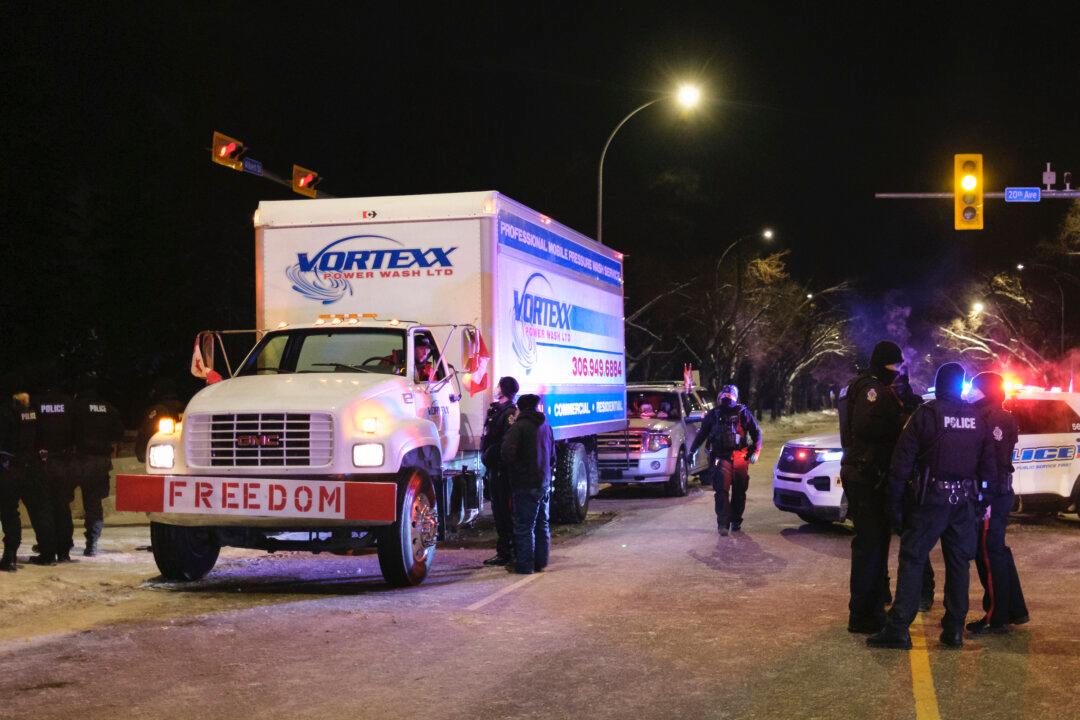The Saskatchewan Court of King’s Bench has ruled that the province’s public health orders (PHOs) limiting the number of people allowed at outdoor protests were “justifiable” while acknowledging the order had violated sections of the charter protecting freedom of expression.
The Justice Centre for Constitutional Freedoms (JCCF), a constitutional rights advocacy group, said it is “disappointed” in the court ruling.





